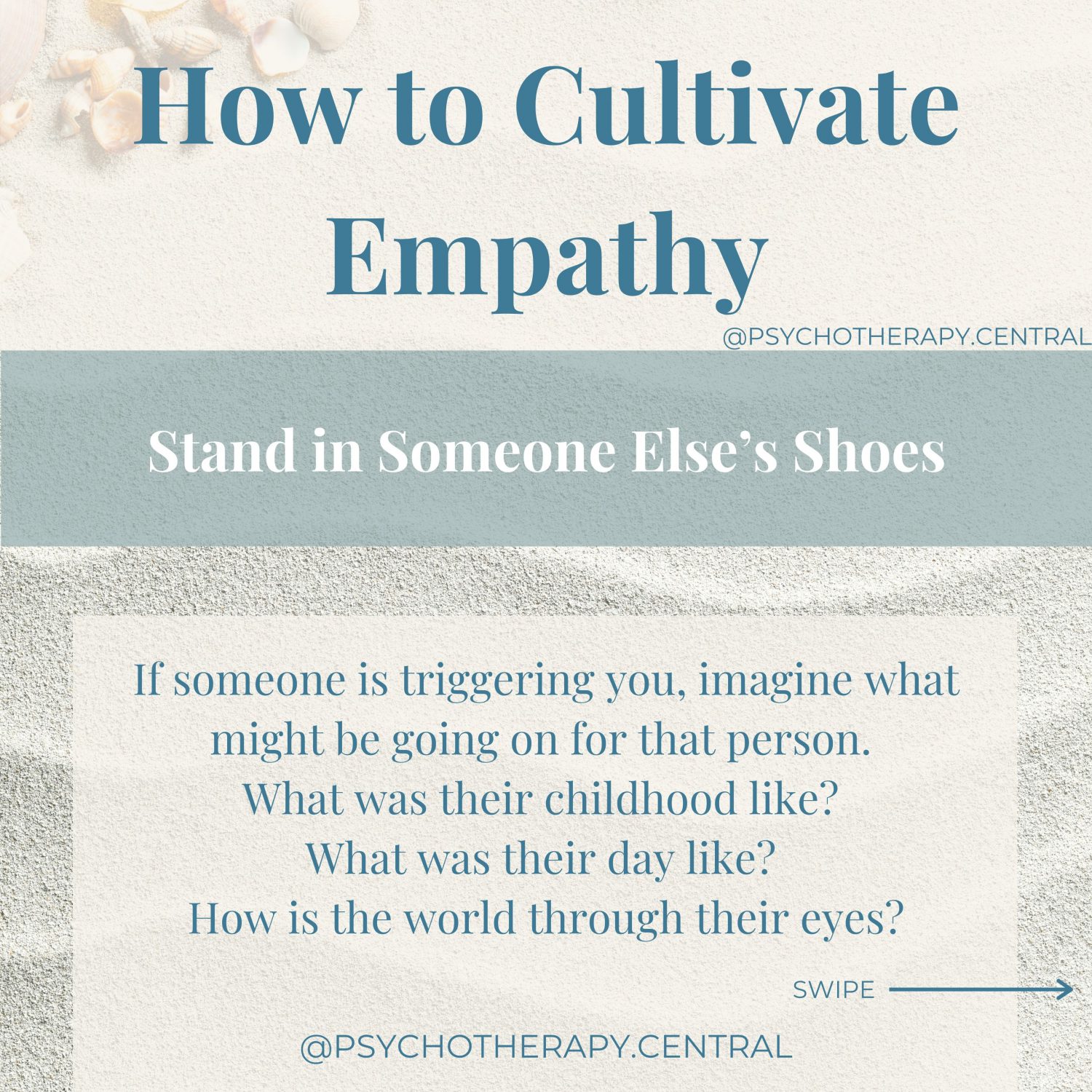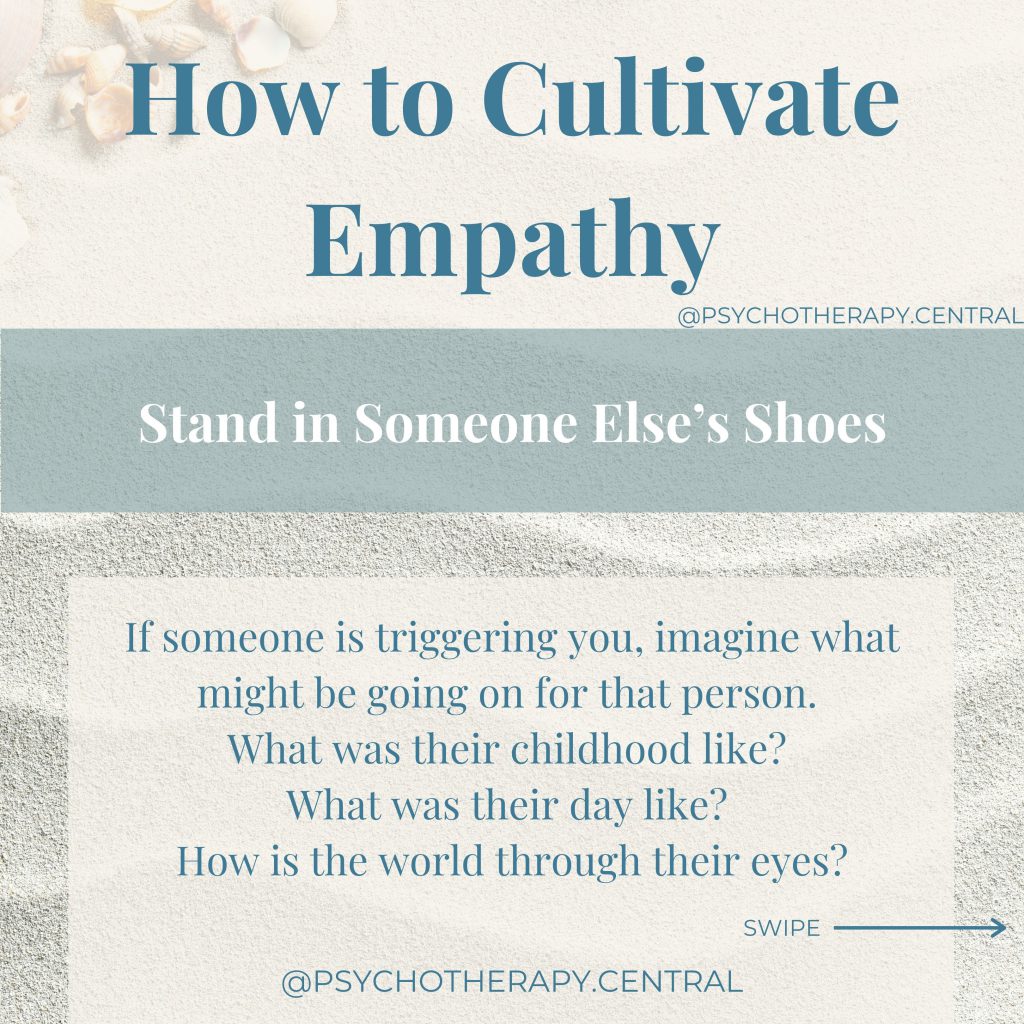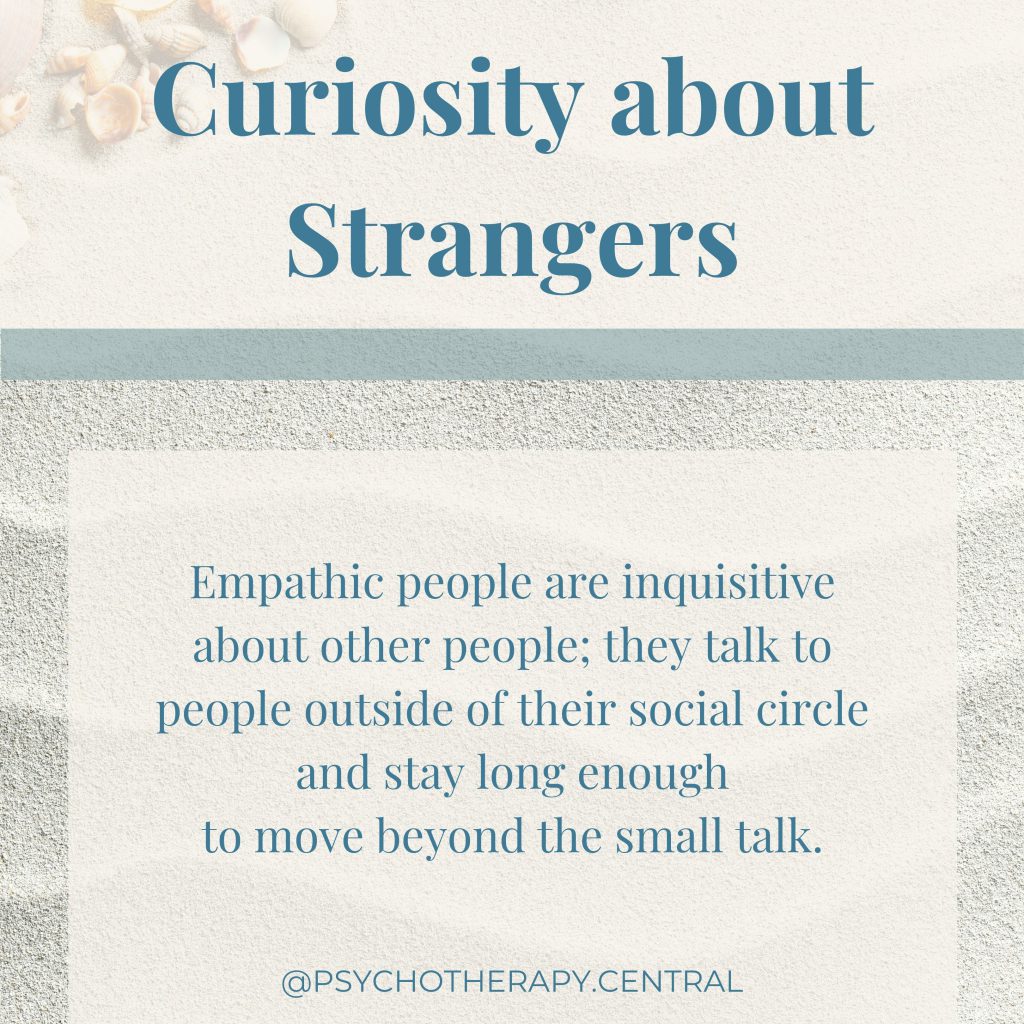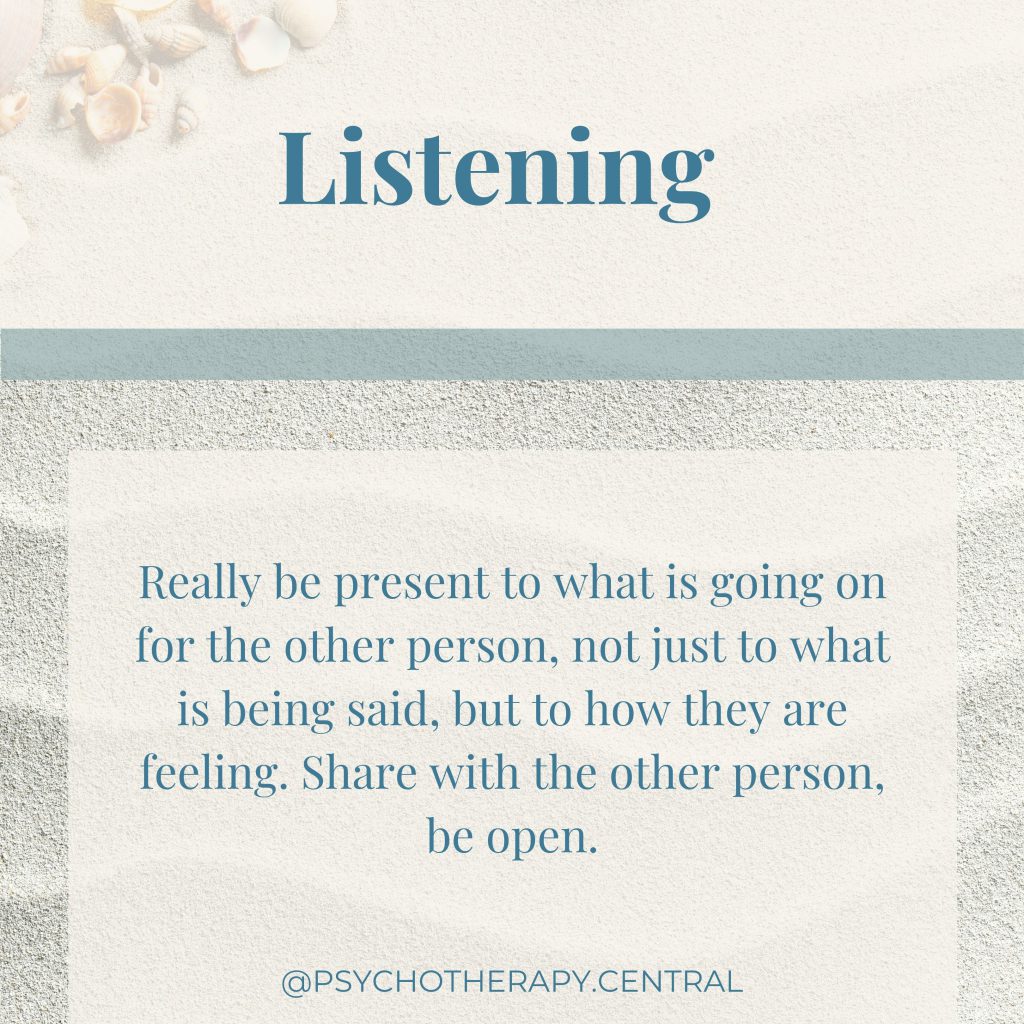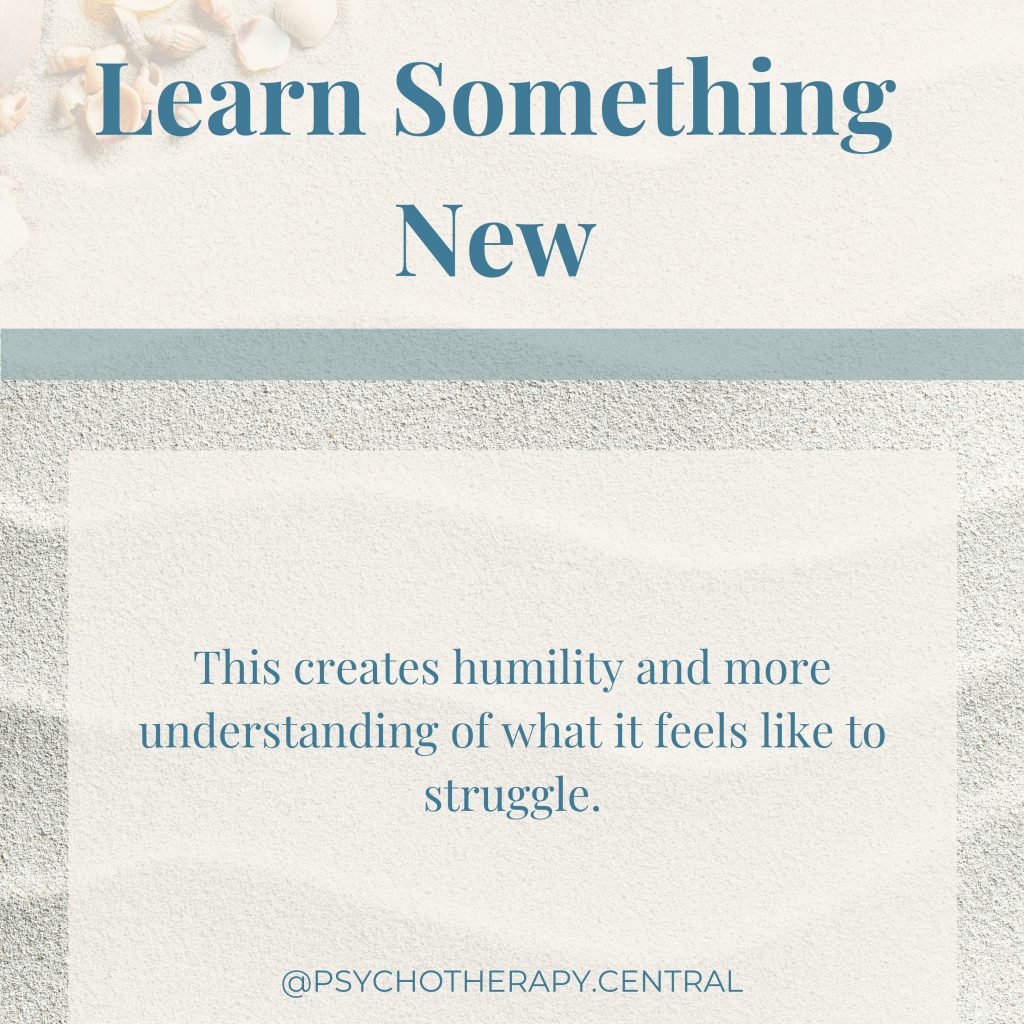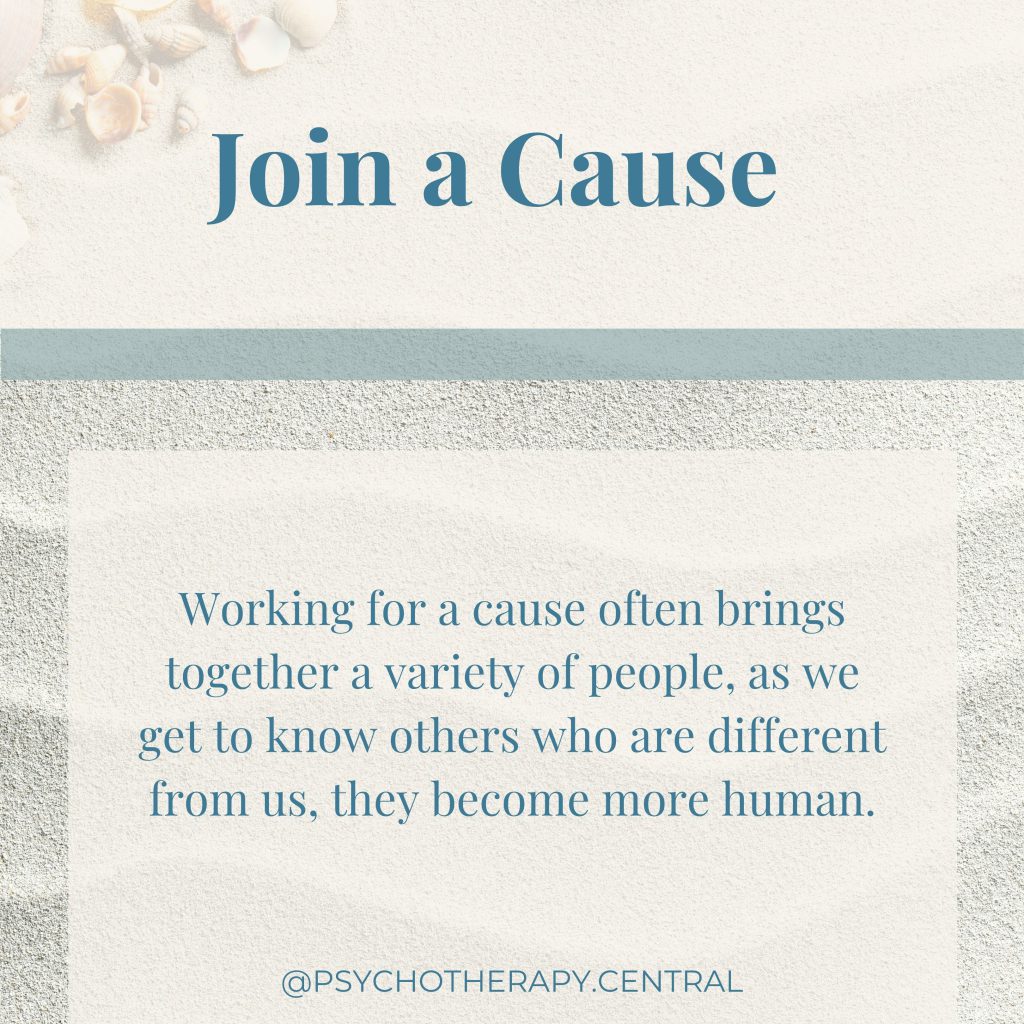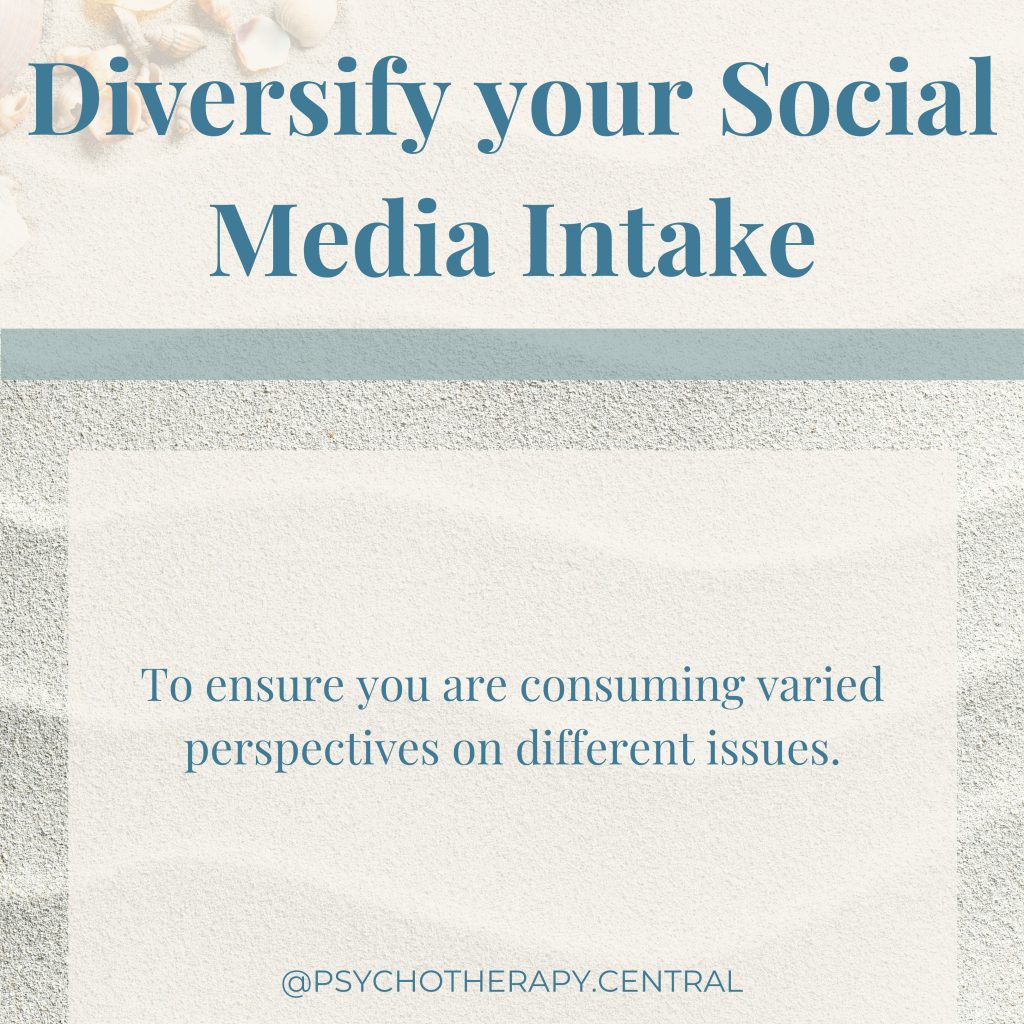It seems many people either feel they have either too much empathy or too little. When we have ‘too much empathy’ it is usually a boundary issue, not an empathy issue. For those people who feel they lack empathy, research has shown there are ways adults can increase their empathy.
The most important of these, I feel, are the ability to really listen and then to imagine what life is like for the other person. I do this a LOT in therapy. Many people don’t have anyone who is there to listen and be with them during difficult times. Often friends and family will try to fix an issue (not really listening) or run out of empathy around a topic.
Maybe when you start to share something important to you that you are struggling with, your friends and family roll their eyes. This is a great time to see a professional. Someone who has more perspective, who can listen with fresh ears and help you to reframe some of the things happening in your world.
It can be an incredible relief to have someone validate your experiences and stand in the bottom of the pit WITH you, rather than sit on the edge rolling their eyes about the fact you are in the pit in the first place.
If you are looking to cultivate your empathy, focus on developing curiosity in strangers, listening to what they are sharing and imagining what life might be like for them. One way to do this might be to start with movies. Choose a character and imagine what it would be like to live their life. For me, Oliver Twist is a great one, the thought of being hungry, cold and without parents sends a shiver down my spine. If I imagine meeting a real life ‘Oliver Twist’ my compassion would motivate me to help him in any way I could.
If this is helpful drop an emoji
Love, Jen
Reference: Miller, C. C. Malouff, J.
